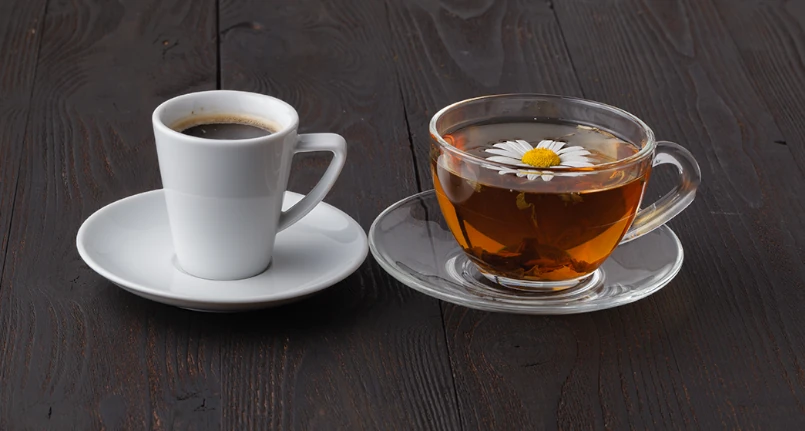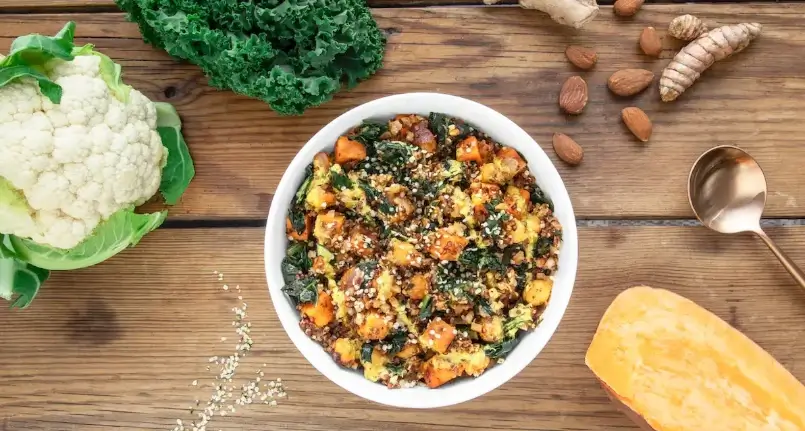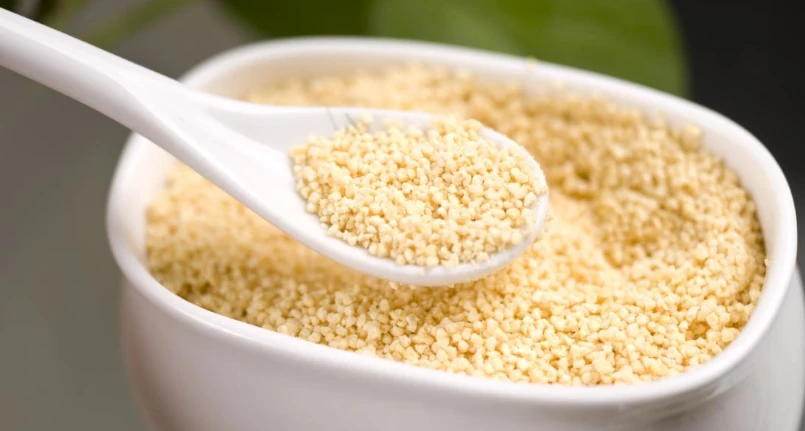Comparison of tea and coffee
They are undoubtedly the two most consumed beverages in the world, in infinite variations, qualities and preparation methods, but tea and coffee are part of the most common food habits. On the table from early morning, for breakfast , they are drunk throughout the day. They are both rich in antioxidants , hydrating and can contribute to metabolic health. They have beneficial properties for health, taken in controlled doses, as they both contain caffeine . Which one to choose? The main difference lies in the levels of caffeine.
Caffeine levels
The caffeine content of various teas and coffees varies based on brewing time, brewing method, and size of beverage. The maximum recommended intake by nutritionists is 300 milligrams of caffeine per day . To get a general idea, here’s a roundup of drinks with caffeine content to compare.
These caffeine levels are based on 1 cup of each drink:
- Cold brew: 96 mg of caffeine
- Espresso: 60 mg of caffeine
- Mocha coffee : 85 mg of caffeine
- Caffe latte: 86.4 mg of caffeine
- Iced Coffee : 74.4 mg of caffeine
- Black tea : 48 mg of caffeine
- Green tea : 28.8 mg of caffeine
- Decaffeinated coffee : 0 to 15 mg of caffeine
- Herbal tea : 0 mg of caffeine
When compared, it is evident that most coffee drinks contain more caffeine than tea , even in the case of some decaffeinated blends.
Caffeine is also present in matcha tea .
Benefits of caffeine
Caffeine, mainly contained in coffee and tea, but also in other foods such as chocolate, has several benefits:
- Facilitates digestion , thanks to its stimulatory effect on gastric and biliary secretion
- It has an energetic and tonic effect , in fact it stimulates cardiac and nervous function
- Promotes weight loss . Caffeine has a lipolytic effect , i.e. it stimulates the use of fat for energy purposes and thermogenesis , increasing the amount of calories burned ;
- Reduces the sense of appetite .
- Facilitates intestinal transit and helps fight morning constipation
Caffeine: what are the risks?
When cafferine intake is excessive , adverse consequences can occur and the beneficial effect obtained from the right doses of the substance mainly contained in tea and coffee can turn into a risk of developing disorders .
- Digestive system disorders : the high acidity of the juices poured into the stomach can cause ulcers , gastritis or gastroesophageal reflux ;
- The tonic and stimulatory effect on cardiac and nervous function can prove harmful to people suffering from insomnia , hot flashes and hypertension ;
- Tachycardia ,
- Pressure swings
- Tremors
- It inhibits the absorption of calcium and iron which can promote anemia and osteoporosis
Taking too much caffeine can be addictive .
Differences between caffeine and theine
When you need to stay awake, to regain concentration and vigor in a moment of tiredness or exhaustion , a cup of tea or coffee can provide the necessary energy boost. Essentially caffeine and theine perform the stimulating and toning function, two substances present in some plants such as coffee and tea, but also in the cocoa plant , mate berries , guarana.
Are theine and caffeine the same thing? At the molecular level yes, as they are two stimulating alkaloids that have the same chemical composition . The same substance which, depending on whether it derives from coffee beans or is extracted from tea leaves, is called caffeine or theine.
Caffeine and theine: same benefits?
Tea and coffee have the same effect on the body because they both contain caffeine. What makes the difference is the concentration and quantity of the active ingredient which varies however from the processing, the type of tea and the infusion time : in tea it is lower than that present in coffee . An espresso coffee can contain from 60 to 80 mg of caffeine, while a cup of tea about 30-40 mg of caffeine (considering 3-4 minutes of infusion).
Coffee properties
Coffee is a good source of the antioxidant polyphenols , caffeine and trigonelline, which boost cognitive functioning and may reduce the risk of memory loss. Along with antioxidants, such as the anti-inflammatory compound chlorogenic acid , coffee also has beneficial effects on brain health , fatty liver , diabetes , and metabolic syndrome .
Properties of tea
Tea also has many health benefits, from nausea to managing headaches and relieving digestive discomfort. Similar to coffee, tea is also packed with anti-inflammatory properties , such as antioxidants. The benefits (and the amount of caffeine present) vary according to the quality of the tea:
- Green Tea : antioxidant , draining , purifying ;
- Black Tea : draining ;
- White Tea : it has less caffeine , therefore, less energizing and more suitable for the evening hours;
- Oolong and Pu erh : fat burners with reduced caffeine content, they can also be drunk in the afternoon
- Rooibos contains polyphenols, hasantioxidant, anti-inflammatory and antiviral properties .




